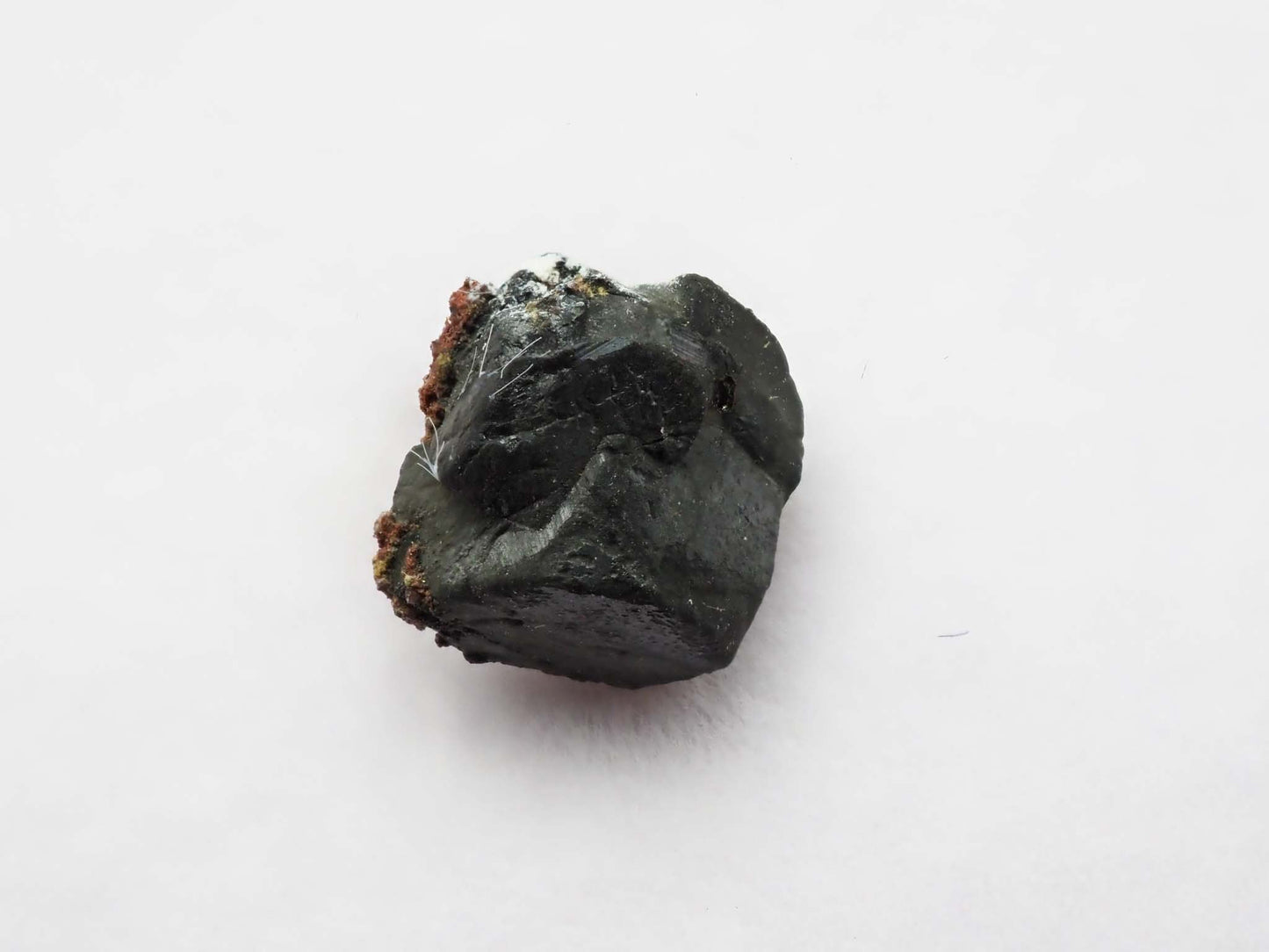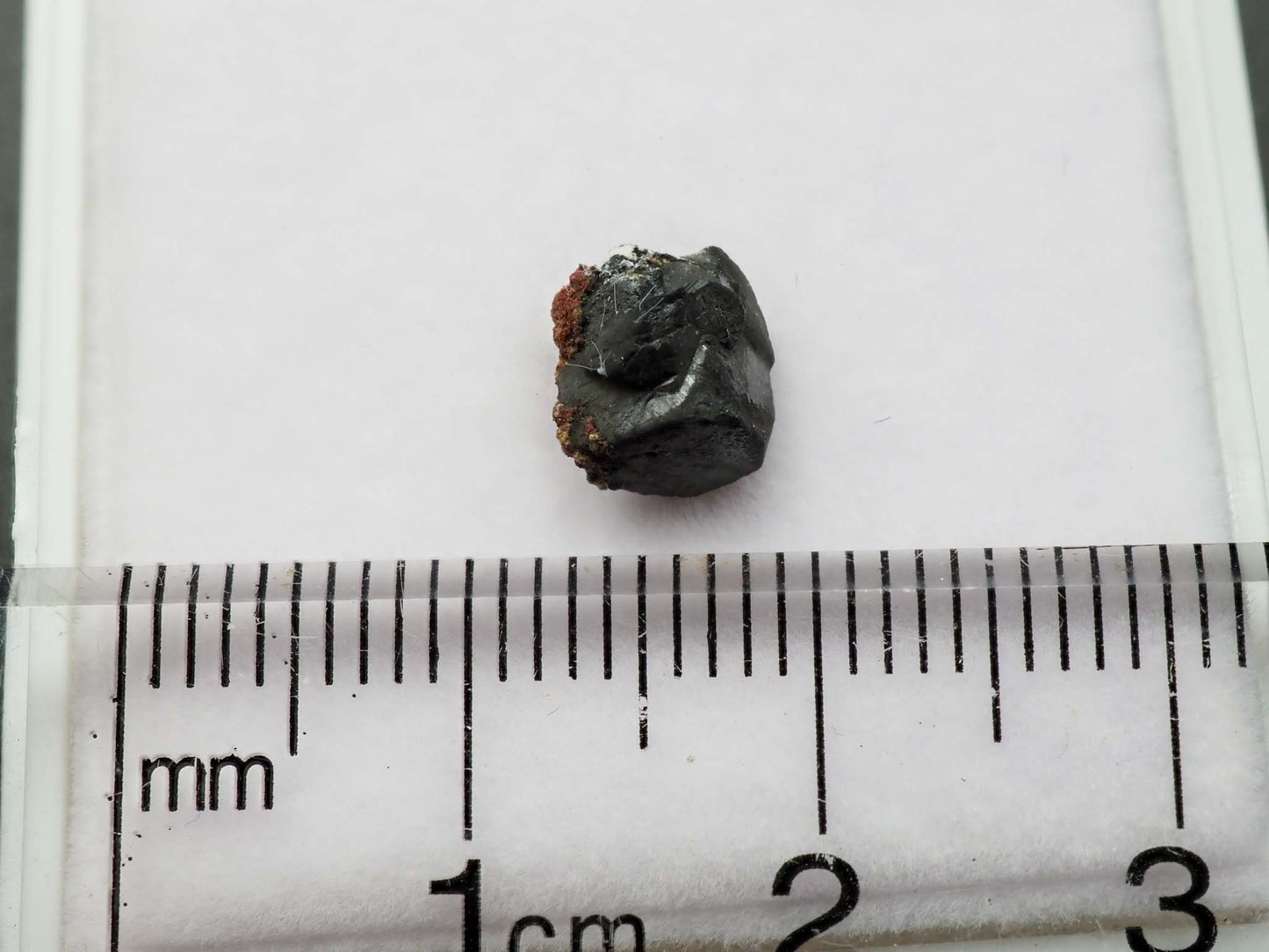Rad Man Minerals
Uraninite Crystal Tripp Mine (Nu-Age Mine), Cardiff Township, Highlands East Township, Haliburton County, Ontario, Canada
Uraninite Crystal Tripp Mine (Nu-Age Mine), Cardiff Township, Highlands East Township, Haliburton County, Ontario, Canada
Couldn't load pickup availability
 UO2
UO2
Uraninite is a highly significant uranium-bearing mineral known for its importance in geological studies and industrial applications. The Tripp Nu-Age Mine in Ontario is recognized for producing distinctive uraninite crystals that showcase exceptional mineralogical and aesthetic features.
1. Geological Context
- Location: The Tripp Nu-Age Mine is situated in Ontario, a region known for its rich and diverse mineral deposits.
- Host Rock and Formation: Uraninite at this site is typically found within granitic pegmatites and metamorphic rocks. These crystals often form under high-temperature and high-pressure conditions, associated with hydrothermal processes or the late stages of magmatic crystallization.
- Age and Geologic Setting: The deposits in this area are believed to date back to the Precambrian era, a time of significant crustal development and uranium concentration.
2. Crystal Characteristics
- Structure: Uraninite crystals from the Tripp Nu-Age Mine often display cubic or octahedral crystal habits, typical of the mineral. Some specimens may also exhibit irregular forms due to distortion during growth.
- Size: Specimens vary in size but are known for their sharp crystal edges and relatively well-formed geometries compared to other localities.
- Color: The crystals are usually black with a submetallic to dull luster, although oxidation may result in the formation of secondary uranium minerals, imparting yellow or green hues.
- Associations: These uraninite crystals are commonly associated with minerals like zircon, monazite, and quartz, adding to the visual and scientific appeal of specimens.
3. Radioactivity and Safety
- Uranium Content: As a primary ore of uranium, uraninite is highly radioactive. Crystals from this mine are no exception and must be handled with care, especially by collectors and researchers.
- Alteration Products: Over time, uraninite may alter to secondary minerals such as autunite or torbernite, which also exhibit significant radioactivity and vibrant colors.
4. Scientific and Collectible Value
- Geological Significance: Uraninite provides insights into the geochemical processes that concentrate uranium and the conditions of early Earth.
- Collector Interest: The crystals from the Tripp Nu-Age Mine are sought after by mineral collectors for their rarity, sharpness, and association with Ontario's storied mining history.
5. Economic and Historical Importance
- Uranium Mining: Ontario’s uranium deposits, including those at the Tripp Nu-Age Mine, have historically contributed to Canada's nuclear energy industry.
- Legacy: The mine holds historical significance as part of Canada's rich mining heritage and its contributions to the global uranium supply.
Conclusion
Uraninite crystals from the Tripp Nu-Age Mine, Ontario, stand out for their geological importance, collector value, and unique crystal morphology. While their handling requires caution due to radioactivity, these specimens remain a key focus for geologists and collectors, offering a glimpse into the region's geological past and industrial contributions.
Comes in a padded gem case.
Specimen Weight: 1.1g
Approx Activity (Se International Ranger EXP): 14600 cpm
Specimen size approx. 5mm x 5mm x 5mm




